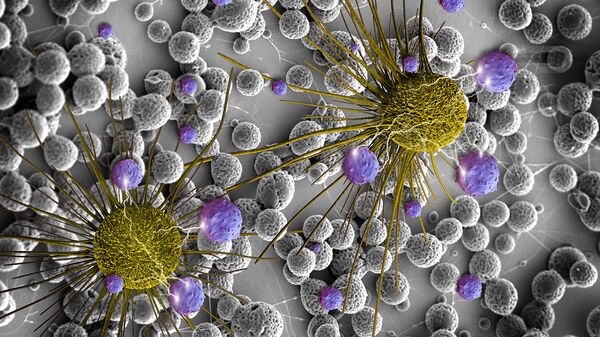When a 53-year-old organ donor died from a stroke in 2007, her organs went to people who needed transplants. She had no known medical conditions that would preclude her donations, and multiple tests showed no signs of cancer, Live Science noted. Subsequently, her heart, liver, lungs and kidneys found new owners.
However, 16 months after receiving the woman's lung, one donor recipient was found to have cancer in the lymph nodes of her chest. A DNA test showed the cancer cells were breast cancer and had come from the organ donor. Unfortunately the cancer spread, and the donor recipient died about a year later.
After that, doctors contacted the remaining patients and warned them about the danger. While the heart recipient had already died from an unrelated illness, the other three recipients all tested negative for cancer, Live Science noted.
However, the liver and left kidney recipients, soon enough, developed cancer themselves, which despite treatment doctors were unable to halt. By 2014, their cancers had spread to other organs and both had died.
The man who received the right kidney, though, had it removed and underwent chemotherapy. He also ceased taking drugs that suppressed his immune system, which all donor recipients are given. The man subsequently recovered and has remained cancer-free since.
The researchers' report on the whole affair was published in the American Journal of Transplantation in July.
So what happened?
The researchers suggested that "micro metastases," or groups of cancer cells, spread from the donor's undetected breast cancer to other parts of her body, being smuggled into the other people in the organs that were transplanted.
Once inside the donor recipients' bodies, the breast cancer cells found places ripe for expansion: donor recipients take drugs that suppress their immune systems, because recipients' bodies often threaten to reject the transplanted organ. The downside is, while accepting the new body parts, they accepted the stowaway cancer cells, too.
"While transplantation is a life-saving therapy for patients with end-stage organ disease, it also puts recipients at an increased risk for developing cancer, in part because of medications administered to suppress the immune system and prevent rejection of the organ," Dr. Eric A. Engels of the National Institute of Health's National Cancer Institute in a 2011 study. "The cancer risk among transplant recipients resembles that of people with HIV infection, whose risk is elevated for infection-related cancers due to immunosuppression."
Engels' study, published in the the Journal of the American Medical Association, surveyed more than 175,000 transplant recipients and found that they had a twofold overall increased risk of cancer, spanning 32 different types of the disease. Different risk factors increased the likelihood of different types of cancer — liver cancer was elevated by the parallel commonality of diabetes, for example. The risk of kidney cancer, on the other hand, increased for all recipients.
Still, the researchers behind the 2018 study maintain, "The extremely low rate of transmission of malignancies during transplantation proves the efficiency of the current guidelines."
Dr. Lewis Teperman, director of organ transplantation at Northwell Health in New Hyde Park, New York, told Live Science that passing cancer through an organ transplant is "a very, very uncommon event," noting that the chances of this case happening are between 1 in 10,000 and 5 in 10,000.




